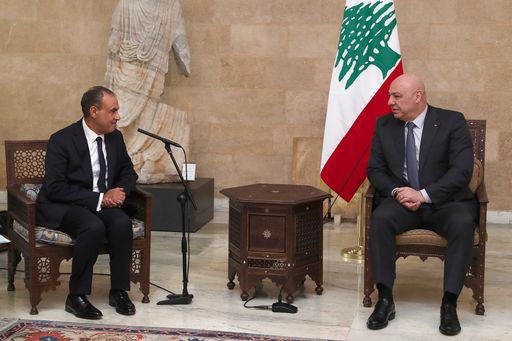Türkiye, Syria, and Jordan have officially begun their mission to combat terrorism in Syria, Turkish Defence Ministry sources said.
The sources stated on Thursday that five countries, Türkiye, Iraq, Syria, Jordan, and Lebanon, previously agreed to establish a joint operations centre to support Syria’s fight against terrorism, especially Daesh.
Noting that Syria requested the Coordination Unit to operate in Damascus, the sources said: “The Coordination Unit, composed of Türkiye, Syria, and Jordan, began its mission in Syria on May 19.”
The sources emphasised that the agreement process between the new Syrian government and the terrorist organisation PKK/YPG-led SDF is being closely monitored in terms of ensuring regional stability and security.
While all positive steps aimed at establishing peace and stability in Syria are supported, the ministry sources stated that the process must be carried out transparently and inclusively, with due consideration given to the legitimate security concerns of all parties.
“Our position on the Syrian army as a single armed structure in Syria and the integration of the SDF terrorist organisation into the Syrian army has not changed. Even if there are disruptions or delays in the process, the outcome will not change,” sources said.
“Decentralisation and separatist agendas will not be allowed in Syria in cooperation with the Syrian government,” the sources added.

Türkiye for ‘SAFE’ Europe
The ministry sources also addressed Türkiye’s potential inclusion in the Security Action for Europe (SAFE), stating that efforts to strengthen Europe’s defence capabilities have accelerated in parallel with the war in Ukraine and current global developments.
The sources noted that the SAFE Regulation, which foresees the allocation of a $170 billion (€150 billion)fund by the EU for defence procurement among member countries, was adopted by the EU Council on May 27.
The ministry sources noted that in principle, the SAFE mechanism is open to the participation of Türkiye, adding that the regulation includes several restrictive provisions concerning non-EU countries.
"Unfortunately, during this process, we have also witnessed attempts to exclude non-EU allies, including our country, from the EU’s defence and security architecture or to use them as a bargaining tool," the sources said.
"We believe that European security can only be strengthened through inclusiveness, strategic foresight, and collective solidarity, and that this requires a visionary approach," the sources added.
The ministry sources stressed that Türkiye, with its advanced defence capabilities, can make a significant contribution to European defence and security, a view also expressed by several allies during the negotiation process of the SAFE regulation.
"Within this framework, we will continue our efforts to enhance defense cooperation with open-minded and forward-looking European allies, both within and outside the SAFE mechanism, leveraging our advanced capabilities in unmanned aerial vehicles, air defence systems, armored vehicles and land platforms, electronic warfare and radar systems, ammunition and rocket systems, as well as naval systems," the sources added.




















